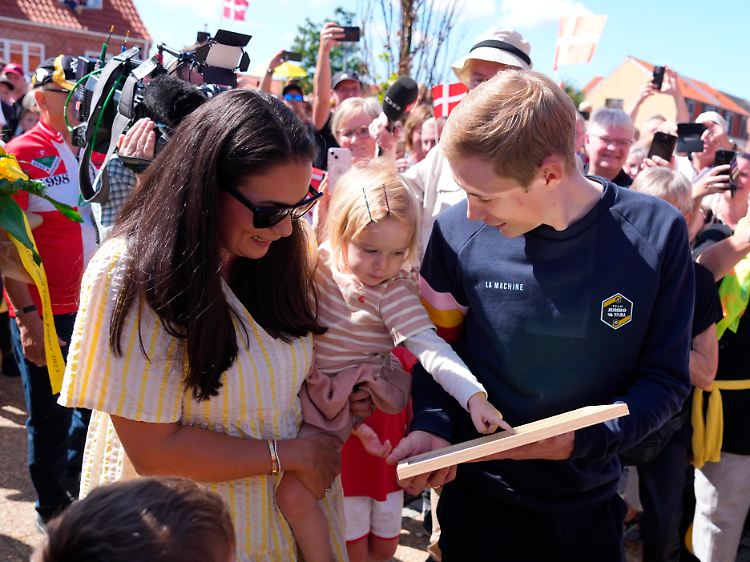Triumph at the Vuelta queen stage
Vingegaard celebrates his daughter’s birthday
September 8, 2023, 7:07 p.m
Jonas Vingegaard makes a big impression on the queen stage of the Vuelta. The Tour de France winner drives away from everyone in his team’s triple success. Competitor Remco Evenepoel, on the other hand, collapses completely and loses more than 20 minutes.
Danish cycling star Jonas Vingegaard won the 13th stage of the Tour of Spain on the legendary Col du Tourmalet in the French Pyrenees. After 134.7 demanding kilometers, the reigning winner of the Tour de France won ahead of his Jumbo Visma teammate Sepp Kuss from the USA, who defended his red jersey as the overall leader. Last year’s winner Remco Evenepoel, however, experienced a major slump and had to bury all hopes of winning the Vuelta.
The Slovenian Primoz Roglic completed the top three on a dream day for the Dutch Jumbo Visma team. In the overall standings, Kuss is now 1:37 minutes ahead of the three-time Vuelta winner Roglic and 1:44 minutes ahead of Vingegaard, who attacked decisively just eight kilometers from the finish and achieved his first Vuelta stage victory in a solo.
“I’m just happy and couldn’t have chosen a better day. It’s my daughter’s birthday,” said Vingegaard at the finish: “I’m so proud – this is for Frida. It went even better than planned.”
Former world champion Evenepoel, who had previously been in a promising position in the race in third place, finished more than 20 minutes after Vingegaard and fell out of the top ten in the overall ranking. The previous runner-up, local hero Marc Soler (UAE Team Emirates), also lost a lot of time and is now sixth (+ 3:10).
The 13th section of the Tour of Spain from Formigal-Huesca la Magia to the Tourmalet, which is a regular part of the Tour of France, was only 134.7 kilometers long – but it had a total of three difficult climbs. Evenepoel, visibly exhausted, lost touch with the leading group after around 45 kilometers at the Col d’Aubisque and fell far behind.
On Saturday, too, the course does not offer the peloton any respite – the stage runs over 156.5 kilometers in the border region between Spain and France from Sauveterre-de-Béarn to Puerto de Belagua. The first 50 kilometers are flat before the professionals have to climb over four mountains in the next 100. The Col Hourcére and Puerto de Larrau are in the most difficult category. The final climb has an average gradient of 6.3 percent over a length of 9.5 kilometers. On the steepest ramps the gradient is 10 percent, the finish is at an altitude of 1587 meters. The Vuelta traditionally ends in Madrid on September 17th.
